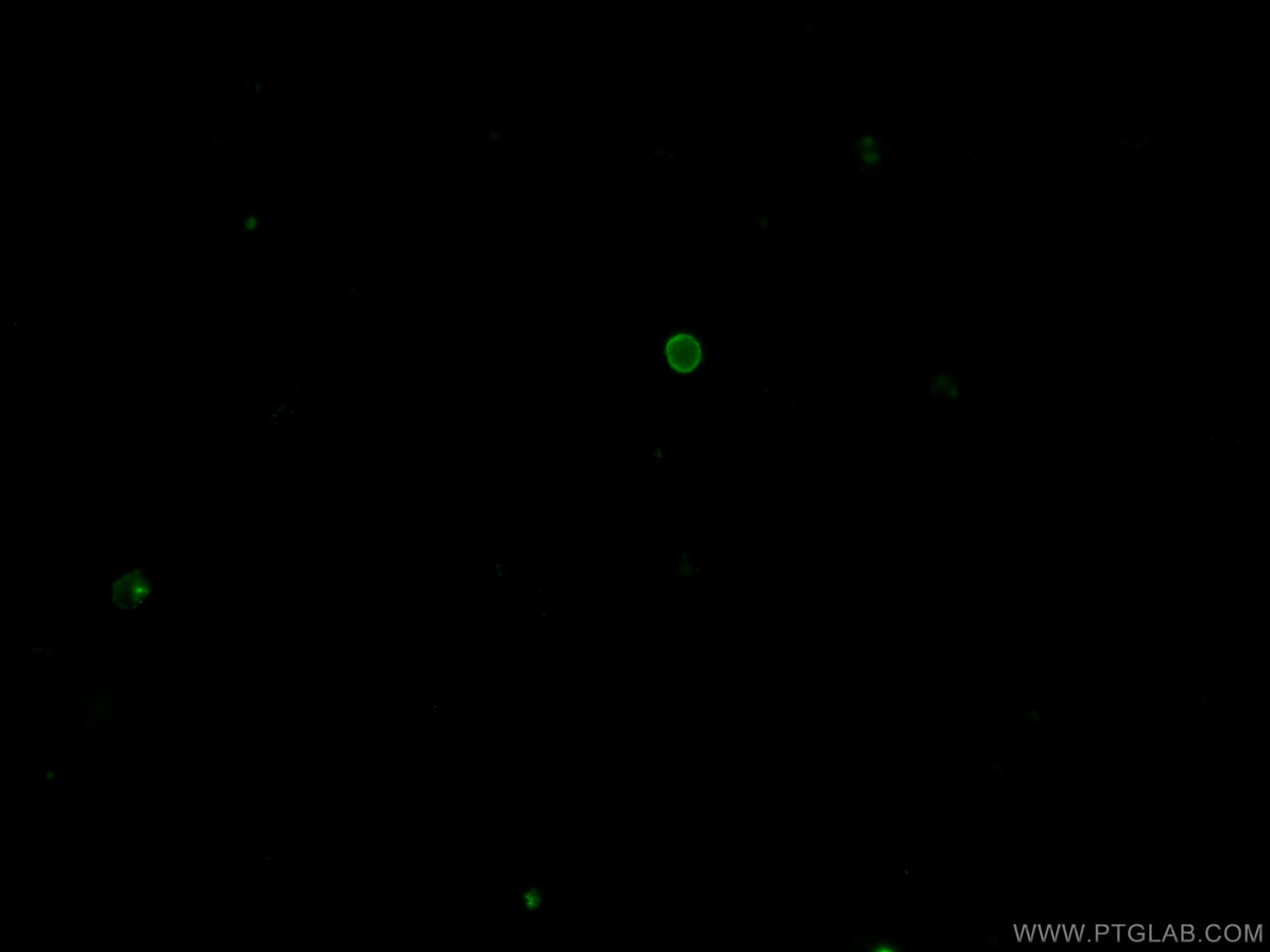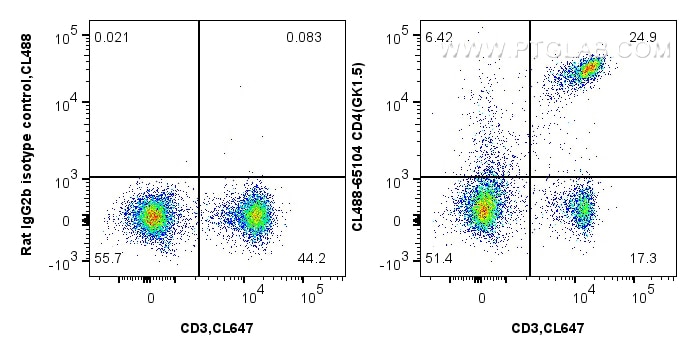Tested Applications
| Positive IF/ICC detected in | mouse splenocytes |
| Positive FC detected in | mouse splenocytes |
Recommended dilution
| Application | Dilution |
|---|---|
| Immunofluorescence (IF)/ICC | IF/ICC : 1:250-1:1000 |
| Flow Cytometry (FC) | FC : 0.25 ug per 10^6 cells in 100 μl suspension |
| This reagent has been tested for flow cytometric analysis. It is recommended that this reagent should be titrated in each testing system to obtain optimal results. | |
| Sample-dependent, Check data in validation data gallery. | |
Published Applications
| FC | See 1 publications below |
Product Information
CL488-65104 targets CD4 in IF/ICC, FC applications and shows reactivity with mouse samples.
| Tested Reactivity | mouse |
| Cited Reactivity | mouse |
| Host / Isotype | Rat / IgG2b, kappa |
| Class | Monoclonal |
| Type | Antibody |
| Immunogen |
Mouse CTL clone V4 Predict reactive species |
| Full Name | CD4 antigen |
| GenBank Accession Number | BC039137 |
| Gene Symbol | Cd4 |
| Gene ID (NCBI) | 12504 |
| RRID | AB_2883178 |
| Conjugate | CoraLite® Plus 488 Fluorescent Dye |
| Excitation/Emission Maxima Wavelengths | 493 nm / 522 nm |
| Form | Liquid |
| Purification Method | Affinity purification |
| UNIPROT ID | P06332 |
| Storage Buffer | PBS with 0.09% sodium azide and 0.5% BSA, pH 7.3. |
| Storage Conditions | Store at 2-8°C. Avoid exposure to light. Stable for one year after shipment. |
Background Information
CD4 is a 55-kDa transmembrane glycoprotein expressed on T helper cells, majority of thymocytes, monocytes, macrophages, and dendritic cells (PMID: 9304802; 12213222). CD4 is an accessory protein for MHC class-II antigen/T-cell receptor interaction. It plays an important role in T helper cell development and activation (PMID: 9539765; 3112582). CD4 serves as a receptor for the human immunodeficiency virus (HIV) (PMID: 9304802).
Protocols
| Product Specific Protocols | |
|---|---|
| FC protocol for CL Plus 488 CD4 antibody CL488-65104 | Download protocol |
| IF protocol for CL Plus 488 CD4 antibody CL488-65104 | Download protocol |
| Standard Protocols | |
|---|---|
| Click here to view our Standard Protocols |






